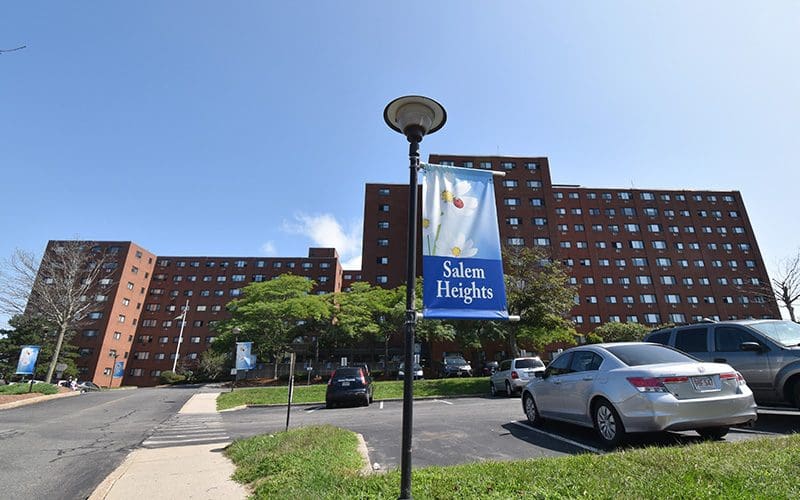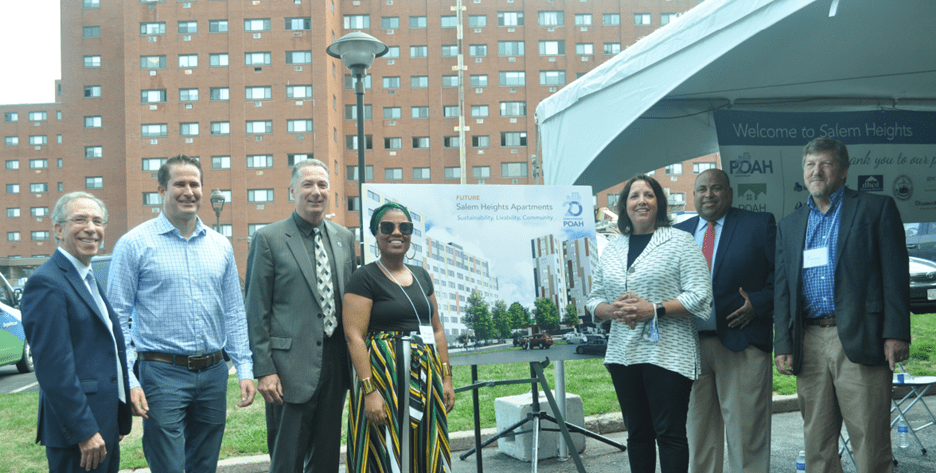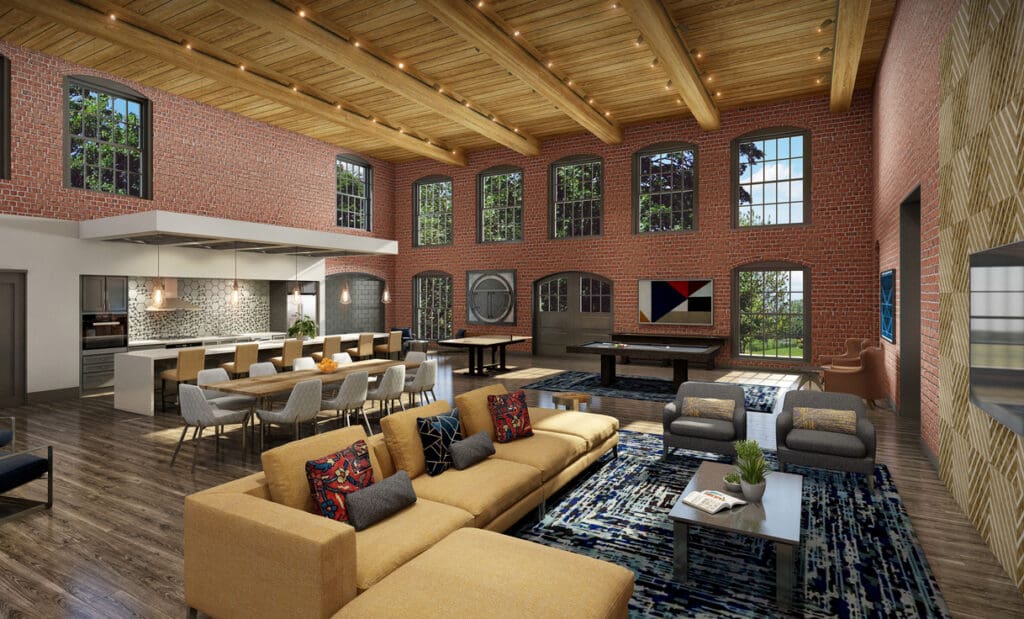Thought Leadership
Mobilizing Local Resources for Affordable Housing
Patrick Duggan
|
The work of an affordable housing developer is never done. Take the case of Preservation of Affordable Housing (POAH), a nonprofit developer, owner, and operator of more than 12,000 affordable homes in eleven states and the District of Columbia. Among its properties is Salem Heights, a 281-unit, dual high-rise community in Salem, Massachusetts. Salem Heights was built in the early 1970s as affordable housing under a HUD subsidized loan. In 2003, POAH stepped in to prevent the property from being converted to market-rate apartments. This made a critical difference: at the time, the units in the two high-rise buildings represented 15% of Salem’s total privately-owned affordable housing supply. POAH dedicated $3 million of its acquisition financing for a modest rehab and subsequently modernized the community’s elevators and heating system.
Flash forward to 2018. Building technologies had undergone a revolution, models of affordable housing had changed, and wear-and-tear had taken its toll. “At nearly 50-years old, our Salem Heights property was ripe for renovation,” said POAH President and CEO Aaron Gornstein. Our acquisition in 2003 was centered on preserving the important housing. Our goal for this next financing was to complete a wide range of renovations to improve the quality of life for our nearly 500 residents.”
With the tax credit financing period on its existing low-income housing tax credits (LIHTCs) expiring, POAH set its sights on a resyndication. Financing affordable housing is a complex undertaking, requiring developers to piece together funding from a variety of local, state, and federal sources, each with its own requirements — and POAH, with its long and successful history, is a master at making large transactions work.
It applied for and received an allocation of $55 million in tax-exempt bonds from the Massachusetts Development Finance Agency (MassDevelopment) and LIHTCs from the Massachusetts Department of Housing and Community Development (DHCD). To maximize tax credits and meet affordable housing needs in the community, POAH increased from 255 to 274 the number of apartments reserved for households earning up to 60 percent of area median income. It also extended by 30 years its commitment to charge affordable rents for those apartments, which was to have expired in 2033.
To make the transaction work, however, POAH needed a LIHTC partner with connections in the investor community and the expertise to help it put a new package together. After examining a number of proposals, it chose our team at Boston Financial.
Going Local Has Its Advantages

One of the selling points of Boston Financial’s proposal was the accompanying local financing. “We are a Boston-based firm, and this deal was in our backyard,” said Laura Surdel, Senior Vice President of Originations. “We immediately wanted to involve some local banks.”
Working with Account Manager Michael Flaherty, Surdel assembled a group of local banks — Rockland Trust, Eastern Bank, East Boston Savings Bank and Peoples Bank — to generate $41.9 million in equity in return for the LIHTCs. Boston Financial also helped team up three of these banks — Rockland Trust, Eastern Bank, and East Boston Savings Bank — to provide the $61 million of financing and bonds on the deal, simplifying the transaction by reducing the number of participants.
Another mark in Boston Financial’s favor was that we had already completed eight LIHTC transactions with POAH. “We appreciate Boston Financial’s commitment to preservation, joint problem-solving and fair closing documents that ensure that the property will be preserved by nonprofit POAH at the end of the fifteen-year tax credit period” said Preservation of Affordable Housing Senior Vice President Dena Xifaras.
Finally, Boston Financial offered a $25,000 community benefit impact reserve that POAH may use at its discretion to improve the lives of the residents. “POAH has a history of creating custom support programs that address the needs of residents in individual communities,” Surdel said. “In establishing the reserve, we wanted to make sure that POAH had the freedom to use it in the most impactful manner at Salem Heights. We wanted to do something extra.”
“Boston Financial’s $25,000 grant helped create a flexible resource we can utilize for resident support during hectic and disruptive construction activity. We hope to replicate the resource with Boston Financial, the City of Salem and/or other funders to explore the possibility of making inroads into reducing the digital divide of our 281 low-income families at Salem Heights,” Xifaras said.
The Massachusetts Housing Partnership (MHP) is the permanent lender, using a Fannie Mae loan product. Other elements of the transaction were subordinate loans provided by DHCD and POAH along with a real estate tax agreement from the City of Salem.
Inaugurating a New Era for Salem Heights

The transaction closed last year, facilitated by the close working relationships among the parties. “Assembling a team with roots in the Boston area made a difference,” Surdel said. “We were all committed to this transaction proceeding as smoothly as possible.” Altogether, POAH assembled the funds to refinance the property and undertake a $40 million top-to-bottom renovation of both buildings. It will be replacing the buildings’ envelope, upgrading apartment and common areas, replacing ventilation/ filtration and cooling units in every apartment, adding a playground for the community’s 150 children, and installing solar panels. It is also converting 15 apartments to ADA-compliant units.
The significance of this transaction was not lost on the community. The groundbreaking ceremony, held last August, attracted a crowd of notables and citizens, eager to celebrate this new era for Salem Heights. They included Congressman Seth Mouton (D-6th), Salem Mayor Kimberley Driscoll, MassDevelopment CEO Dan Rivera, State Representative Paul Tucker, and partners, funders, and residents. “We are really excited to see these renovations begin,” Xifaras told The Boston Globe. “This will enhance the lives of 500 tenants who have been very patiently waiting for these upgrades to their community buildings and their units.”
Partnering On Gardner Terrace

Our work with POAH has continued to expand over the past year. On July 10th of this year we were proud to join POAH, alongside Congressman Jake Auchincloss, DHCD Undersecretary Jennifer Maddox, and MassHousing Executive Director Chrystal Kornegay, for the groundbreaking of another affordable housing community: Gardner Terrace in Attleboro, Massachusetts.
Gardner Terrace — often referred to as “Makepeace Apartments” in a nod to its past as the Makepeace Jewelry Company — consists of 92 homes that provide a critical and deeply affordable housing resource for seniors in Attleboro. POAH has made emergency capital repairs to stabilize the buildings and address significant deferred maintenance from a past owner and working with Boston Financial and other investors has gone on to make renovations that include full roof and siding replacement, historic
replica window installation, improved ventilation, a new energy efficient heating and cooling system, and apartment and common area upgrades.
Mayor Paul Heroux told The Sun Chronicle that the restoration of the structures is important for many residents with low incomes. “These are important housing complexes for people who are living on a low income or near the poverty line,” he said, noting that he recently submitted a letter to the Secretary of State in support of the POAH application for a Historic Tax Credit.